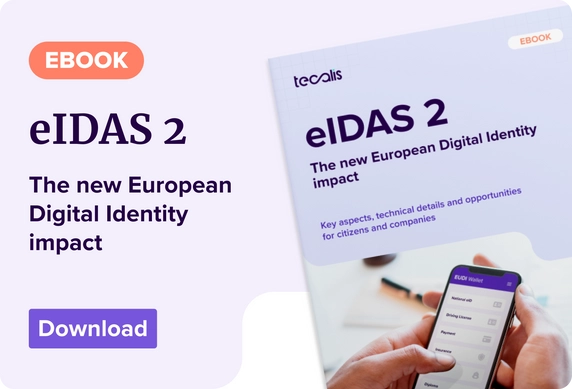Index
Get the latest news right in your inbox
Open Banking has revolutionized the financial ecosystem by opening up access to customer banking data to third-party providers through APIs. This democratization has driven the creation of new personalized financial services, allowing users to manage their finances more effectively.
How does this affect payment methods? The integration of Open Banking in payments has made transactions more agile, secure and economical. Businesses can access bank accounts directly, reducing dependence on intermediaries and improving the efficiency of transfers. This is particularly beneficial for e-commerce and P2P (peer-to-peer) payment platforms as it allows real-time payments without incurring the high costs of traditional transactions.
The future of Open Banking in combination with instant payments and tokenization promises a total ecosystem transformation, where payments will be faster, safer and more seamless. In addition, the integration of artificial intelligence (AI) and machine learning in digital onboarding and other customer journey processes in these solutions enables proactive fraud detection and personalization of financial services in real time.
More capable and secure payment services
Today, the financial sector is undergoing an unprecedented transformation. Technological advances, changing consumer expectations and regulatory developments are redefining the payments, banking and digital identity landscape.
Impact on payment innovation
Open Banking has opened the door to a new generation of payment services. Fintechs and traditional banks are collaborating and competing to offer faster, safer and more convenient solutions. Some examples include:
- Account initiated payments (PIS): Allow payments directly from bank accounts without the need for cards.
- Account Aggregation: Facilitates users to view all their bank accounts in a single interface.
- Account Information Services (AIS): Provides a holistic view of the user's finances. Something that will become even more important and simpler when EUDI Wallet is implemented.

Digital Identity and KYC: new security standards
One of the key pillars in the evolution of digital payments and e-commerce is digital identity. Digital identity management is becoming fundamental to ensure the security and fluidity of transactions in an environment where users need to authenticate themselves quickly and reliably.
The KYC (Know Your Client) and KYB process has undergone a profound transformation in recent years, driven by the adoption of advanced technologies such as biometrics, AI and blockchain. These technologies make it possible to verify a customer's identity accurately, reducing onboarding times and improving the user experience.
The concept of reusable digital identities is gaining traction. These allow users to verify their identity once and then reuse that credential across multiple services. Benefits include:
- Friction reduction in the onboarding of new services.
- Greater user control over their personal data.
- Reduced verification costs for companies.
However, the widespread implementation of this system requires close collaboration between governments, financial institutions and technology providers. KYC and KYB (Know Your Business) are also evolving to improve the verification not only of individuals, but also of companies, enabling greater security in corporate transactions and facilitating the internationalization of companies.
eIDAS 2.0: new paradigm for Digital Identity in Europe
A crucial aspect in this evolution is eIDAS 2, the update of the European framework for electronic identification and trust services. This new regulation seeks to standardize digital identity across all member countries, allowing citizens to use a single digital identity across Europe, which will facilitate both commercial transactions and the provision of public services.
The eIDAS 2.0 (electronic IDentification, Authentication and trust Services) Regulation represents a quantum leap in digital identity management in the European Union. This update aims to:
- Create a European Digital Identity: An interoperable digital identity system recognized throughout the EU.
- Improve Privacy: Allowing users to control what information they share and with whom.
- Driving Adoption: Forcing large online service providers to accept the European Digital Identity.


Tokenization and AI: the future of ecommerce
Tokenization has become an essential technology for securing online transactions. This technique replaces sensitive customer data with a unique token that is useless to attackers. In ecommerce, tokenization of 100% of transactions is the long-term goal, as this would significantly reduce the risk of fraud.
The incorporation of artificial intelligence (AI) in ecommerce adds an additional layer of security. Not only is AI capable of analyzing large volumes of data to identify fraud patterns, but it can also improve the customer experience by personalizing offers, recommendations and checkout processes.
Generative AI is also beginning to play a role in transactions, enabling the creation of predictive models that can anticipate customer needs or detect anomalous behavior that suggests fraud. As these technologies become more deeply integrated into ecommerce, the ecommerce of 2030 is expected to be more personalized, secure and efficient.
PCI DSS scope reduction is a priority for many merchants. Strategies include:
- Card data tokenization.
- Use of iFrames for payment processing.
- Implementation of hosted payment solutions.
Instant payments: an essential and standardized requirement
Instant payments are changing the way we interact with financial services. The ability to make payments in real time has a significant impact on customer satisfaction and operational efficiency for businesses. In many industries, such as e-commerce and financial services, the ability to receive payments immediately has become essential.
However, the implementation of instant payments is not without its challenges. It is necessary to ensure interoperability with existing payment systems and maintain high levels of security. In this context, merging with emerging technologies such as AI and the Internet of Things (IoT) is key to boosting adoption. For example, AI can help automate and optimize instant transaction processing, improving both security and user experience.
KYC and KYB processes are evolving rapidly, incorporating new technologies to improve efficiency and security in instant payments thanks to:
- Advanced Biometrics: Facial, voice and behavioral recognition for stronger authentication.
- Blockchain: To create immutable and secure records of verified identities.
- Ongoing monitoring and anti-fraud controls: To detect suspicious patterns and reduce false positives in fraud detection.
The main challenge lies in balancing security with user experience, ensuring smooth onboarding processes without compromising verification integrity.
Embedded Finance and BaaS: Financial services for all
The concept of Embedded Finance is challenging the status quo of traditional banking. Banking as a Service (BaaS) enables non-banking companies to offer financial services integrated directly into their products. This approach not only democratizes access to financial services, but also enables companies in other industries to offer customized payment solutions to their customers without the need to develop banking infrastructure from scratch.
The expansion of Embedded Finance is transforming not only B2C payments, but also B2B payments, which are experiencing unprecedented automation and optimization. This makes it easier for companies to better manage their cash flows, make international payments more easily and optimize their overall financial operations.


BaaS allows non-banks to offer financial services through APIs. This is democratizing access to banking services and creating new business opportunities. The integration of financial services into non-financial products and services is redefining the distribution of banking services. Some examples include:
- Loans at the point of sale.
- Insurance integrated in product purchases.
- Investment services in non-financial applications.
PCI Scope Reduction: Card-not-present transactions
One of the most important challenges in handling payments in card-not-present environments is data security. The Payment Card Industry Data Security Standard (PCI DSS) sets strict requirements for protecting sensitive data in card-not-present transactions. Reducing the scope of a PCI audit is essential for merchants, as it reduces the cost and complexity of complying with these regulations.
How to achieve this reduction in scope? Companies are adopting solutions such as tokenization and advanced encryption to limit the exposure of sensitive data. In addition, implementing tighter controls on information access can significantly reduce security risks.

Payments, data and omnichannel optimization
Payment optimization is a strategic factor for business growth. Companies that are able to efficiently manage their payment flows not only reduce costs, but also increase their conversion rates and improve the user experience.
Using data to improve visibility and adjust authentication flows is key to increasing approval rates and reducing the number of failed transactions. Properly configuring payment messages, customizing authentication flows and analyzing payment patterns in real time can have a significant impact on a company's performance.
The omnichannel strategy has become an imperative for companies looking to deliver a consistent and seamless customer experience. Integrating payment systems across multiple channels (online, mobile, in-store) is crucial for a true omnichannel experience. This involves:
- Unified backend systems that allow a 360° view of the customer.
- Consistent payment options across all channels.
- Ability to initiate a transaction in one channel and complete it in another.
The power of data and analytics is critical to understanding and improving the customer experience:
- Predictive analytics to anticipate customer payment preferences.
- Advanced segmentation to deliver personalized experiences.
- Real-time analysis to optimize conversion rates.
Industry insights and feedback
The digital payments ecosystem is evolving rapidly, driven by emerging technologies such as Open Banking, tokenization, AI and reusable digital identities. As these innovations become more deeply integrated into the financial infrastructure, the future of payments promises to be more secure, efficient and personalized, transforming not only e-commerce, but the entire digital economy.
Digital transformation in the payments, banking and digital identity sector is advancing at an unprecedented pace. The convergence of technologies such as AI, blockchain and biometrics, along with new business models and a customer-centric approach, is creating a more inclusive, efficient and secure financial ecosystem.

However, this path is not without its challenges. Data security, regulatory compliance and the need to balance innovation with financial stability remain critical concerns. As we move forward, collaboration among all ecosystem players - banks, fintech, regulators and consumers - will be critical to successfully navigating this new era of digital financial services.
The future of the industry promises to be exciting, with the promise of more accessible, personalized and secure financial services. Companies that manage to adapt to this changing landscape, embracing innovation while maintaining a strong focus on security and customer experience, will be well positioned to lead in this new digital era.
























